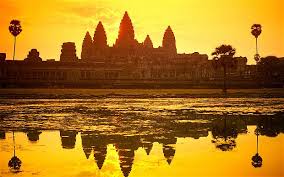My series Better Read Than Never – okay, technically, it is now a series because there are two of ’em – has been stalled because I’m too anxious to do too good a job for the too few of you out there in Electronville who, come to think of it, are often too busy to read The Howden anyway. My library copy of The Iron Cage: The Story of the Palestinian Struggle for Statehood has been renewed three times and I’ve nearly paid for it in fines; mind you, I’ve never begrudged library penalties, which are merely an unreceipted form of useful charity. The review is going to be long unless I terminate it thuddingly. But it’ll come soon-ish. (I think.) (Prologue ends.)
In the meantime, though, I’ve read a couple of other fine things, one of which is recent enough that it doesn’t quite fit the series rubric, but makes me eager to read two writers that I’ve mainly missed so far. It’s an odd little book, one I found occasionally flat yet generally compelling, called What I Talk About When I Talk About Running. It’s by a Japanese novelist and translator named Haruki Murakami, and it’s a curious kind of memoir. It mainly tracks his twenty-five year career as a recreational long-distance runner (and sometime triathlete), which roughly parallels and, he maintains, both informs and essentially supports his work as a writer.
Murakami is a diffident confidante, an unfamiliar voice that obscures as much as it reveals about the author. On more than one occasion, he notes that readers “probably wouldn’t like” him, and he is sometimes distant and bland in his summaries of the meaning of this observation or that running result. That’s just how I am. That’s life. This is how it goes. At first, I found these simple blurts disappointing, a signal that this book was something of a rush-job, but I came to see them as an accurate (and, finally, interesting) portrait of a man in search of some limited and non-ecstatic conclusions about his life and its meaning.
In fact, by the end I regarded his tone as a subtle rebuke to the my life is singular and rich and here’s how ALL could benefit from fingering its silken edges ambience of some (western) celebrity bios. For only one small example, an early casual mention of having been married at 22 seemed to me a clear signal that marriage was far in his rear-view window. In fact, his wife later makes brief and almost accidental appearances in this memoir of monkish discipline; she is never named or described, a level of biographical focus (and adherence to privacy, I suppose) that is startling. The Western attachment to personality, fame and disclosure seems exhibitionist by comparison.
He likes to be alone, and he’s with the Buddha: Life is suffering. This narrow gateway to understanding informs his thought about running and life: “[t]hey might not amount to much, but they are personal lessons I’ve learned through actually putting my body in motion….They may not be lessons you can generalize, but that’s because what’s presented here is me, the kind of person I am.” I’m a worn-out ex-jock who still tries to run, though the distances have never been what Murakami routinely pulls off. (The jerk.) I’m also a writer, and the confluence of these two themes – rigorously and sacrificially adhered to by this paragon of focus and discipline – really took me in. If you have either of these two interests, or both, you may be, too.
And the title? Its oddly rambling nature fits perfectly, but it wasn’t until Murakami’s after-word that I realized it was a homage to one of his favourite writers to read and translate into Japanese, the American minimalist Raymond Carver. (I know Carver only by reputation – writers often refer to him – and he keeps popping up for me. Another one for the Better Read Than Never list.) One of Carver’s best-known tales is the title story of a notable collection: What We Talk About When We Talk About Love. Ah. I think I understand. Hiraku Murakami loves running. He loves writing. He loves simplicity in both. That’s how things work for him.

